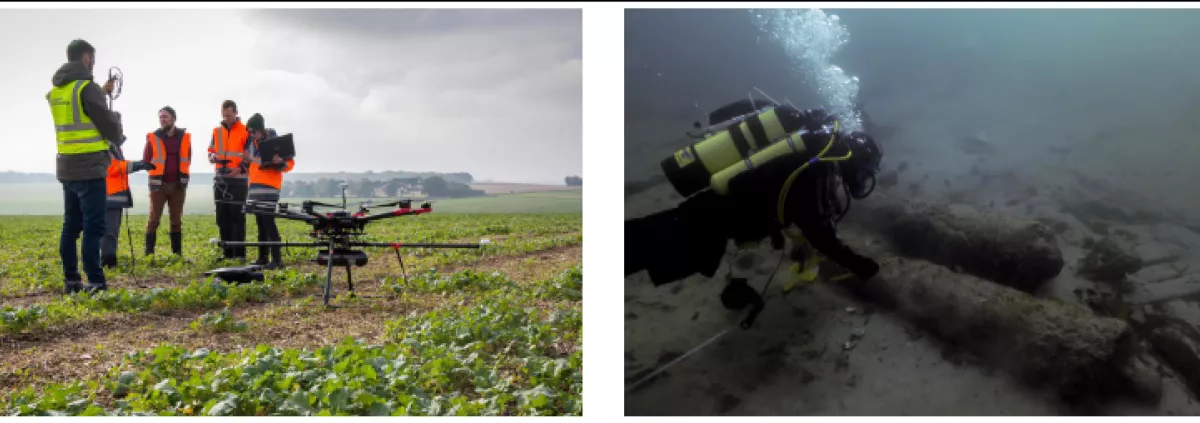Archaeological work in support of flood and coastal schemes is an integral part of the development process – but could we be making more of the benefits that this work can bring in contextualising landscape change to inform habitat restoration and engage?
2022 was Wessex Archaeology's 5th appearance at Flood and Coast, and first in-person since 2019 they have illustrated how archaeological work in support of flood and coastal schemes forms an integral part of the development process. Wessex Archaeology demonstrated how an understanding of past environmental change and human adaptation can inform habitat restoration and offer narratives for local communities, and be used to add significant value to the Flood and Coastal Erosion Risk Management (FCERM) Strategy Roadmap.
Outlining some of the unique heritage challenges the U.K presents, from dynamic coastlines to riverine environments, flood and coastal schemes are an excellent match for Wessex Archaeology's exceptional range of specialist technical services in all terrestrial, intertidal and submerged environments right across the UK.
Whether it is scientific knowledge-gain – such as reconstructing the changing vegetation history of a site over time, or modelling the response of natural systems to changing climate stimuli and sea-levels - or engagement activities to enhance placemaking, build resilience and communicate the realities of flood risk in local communities, there are surprisingly few areas where archaeology and heritage cannot add value. Crucially for clients like the Environment Agency, this value can also be tracked against specific Sustainable Development Goals.
